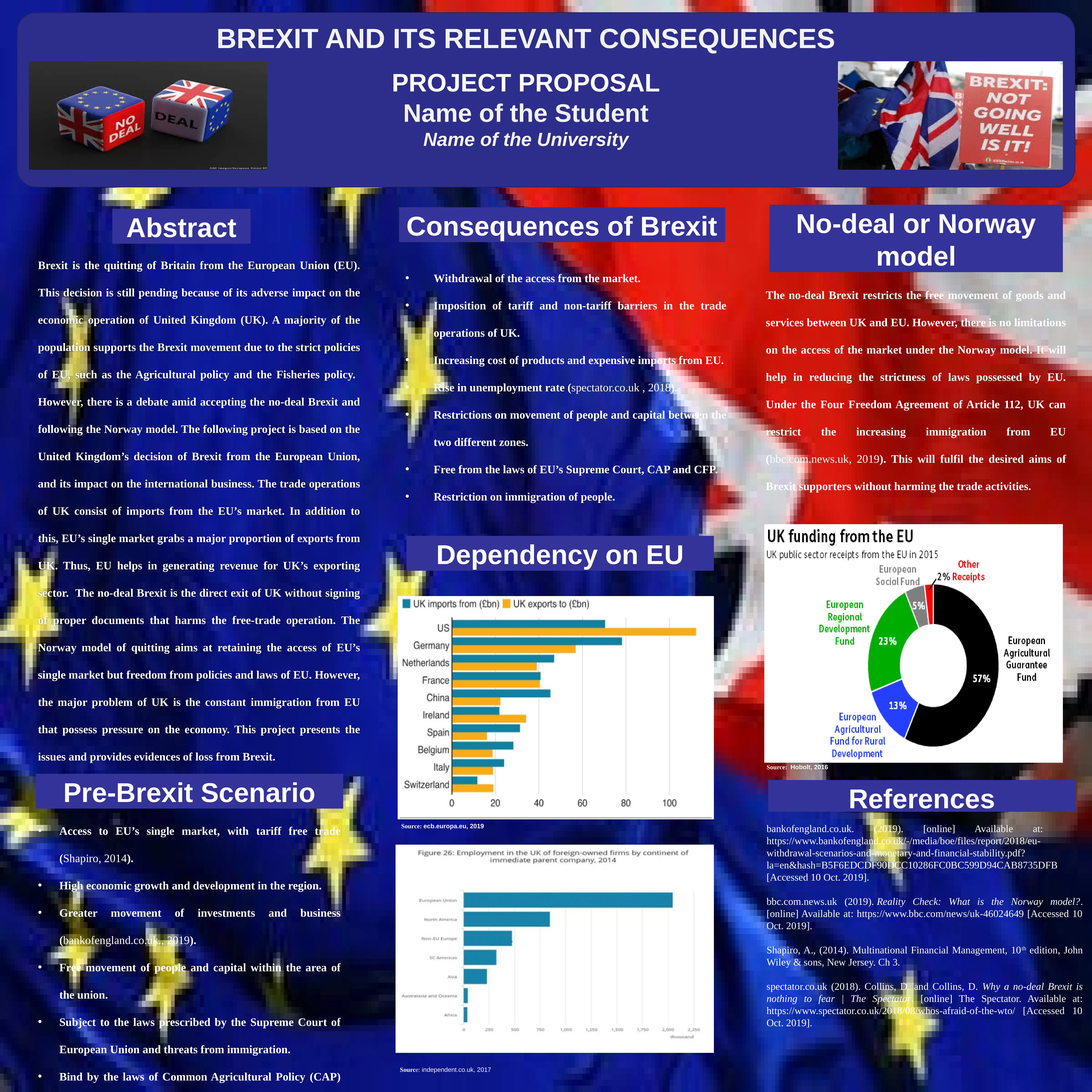University Name: Economics 3550 Brexit Consequences Project
VerifiedAdded on 2023/03/29
|1
|525
|141
Project
AI Summary
This project proposal delves into the multifaceted consequences of Brexit, focusing on the economic implications of the UK's departure from the European Union. It explores the debate surrounding no-deal Brexit versus the Norway model, analyzing the impact on trade, tariffs, and market access. The proposal examines pre-Brexit scenarios, highlighting the benefits of the EU's single market, and contrasts them with potential post-Brexit challenges such as increased costs, unemployment, and restrictions on movement. The project also addresses the role of immigration and the implications of different Brexit models on trade operations and economic growth. The analysis includes references to various sources, including academic publications and governmental reports, to support its arguments and provide a comprehensive understanding of the complex issues surrounding Brexit.







![[object Object]](/_next/static/media/star-bottom.7253800d.svg)